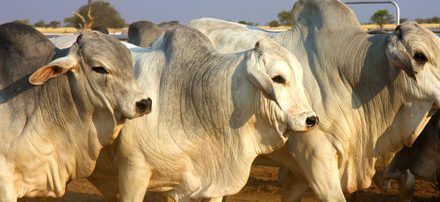
Bernafay farmers plea for assistance

Sheep farmer, Neels Theron with the sheep at Bernafay
“The government is helping us, we just have a problem with the workforce, the youth do not want to help and assist in the project, they would rather work for commercial farmers who charge them N$ 50,” said Jacobs. He added that although proceeds from the project is divided amongst the 13 households, it is usually not sufficient enough. “The money we generate from the sales is mainly used to purchase diesel for the tractor and the generator,” he said. According to Jacobs, diesel costs approximately N$2500 for 1 litre drum. He said the vegetables that are left over from the sales are also divided amongst the 13. Although Bernafay is situated in an arid are, Jacobs explained that to supply the crops with water, the farm derives the water from a spring. According to Jacobs, the Ministry of Lands and Resettlement annually provides the project with seeds as well as insecticides. In a plea to get more assistance from government, Jacobs said that the project is in need of transport to sell the produce and is also requesting for provision of more seeds especially watermelon seeds that are not provided to them on time. Although the Ministry of Agriculture recently introduced a marketing agency for fresh produce farmers called Agricultural Marketing and Trading Agency (AMTA), according to Jacobs, they have only heard about AMTA through the Mariental Rural Constituency Office in Stampriet. “We have approached AMTA for assistance to help us market our fresh produce but we are still waiting for a response from them,” said Jacobs. According to AMTA Spokesperson, Meke Uushona, Stampriet supplies fresh produce through AMTA agencies and the produce are sold at the two regional hubs in Ongwediva and Rundu. She urged the Bernafay community to seek assistance from the AMTA agents in Stampriet. “The market is congested, there are lots of farmers in this area who also sell their fresh produce. The young men who are capable of working are reluctant because we do not pay them but instead work for the commercial farmers,” Jacobs relayed. He said, “the youth are only interested in helping in the project when it comes to selling the vegetables as they know that is the only way they will benefit directly from the proceeds. I urge the youth to do something for themselves, if they can work for their food then they do not need to be unemployed and go hungry.” Apart from growing vegetables to sustain their lifestyles, the Bernafay community recently obtained 200 female sheep and six rams to a value of N$200,000 through the Hardap Regional Council micro-project funding. The sheep, which have now reproduced consist of 274 female sheep, 124 lambs and 45 male sheep. According to project manager of the Bernafay Agricultural project, Johannes Jossob, the deworming medicine for the sheep is bought with proceeds derived from the sale of fresh produce. “The medicine is quite expensive and can cost us N$1500 for a five litre container, we would like to appeal to the Hardap Regional Council to assist us with medicine because the medicine is very expensive,” said Jossob. He added that for now, they are not allowed to sell the sheep but will keep them for breeding purposes. Even though the project was allocated a vehicle and trailer by the Hardap Regional Council through the ‘One Region, One Initiative’ the vehicle is not kept at Bernafay. This, according to April Barthlomeus, control administrative officer at Stampriet constituency office, is because having possession of the vehicle is not an easy task. Barthlomeus also said that although no amount has yet been established to sell the sheep, the plan is to distribute the benefits coming from the sales of the sheep amongst each household.











































